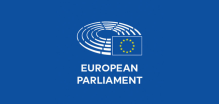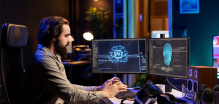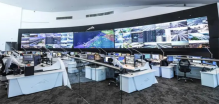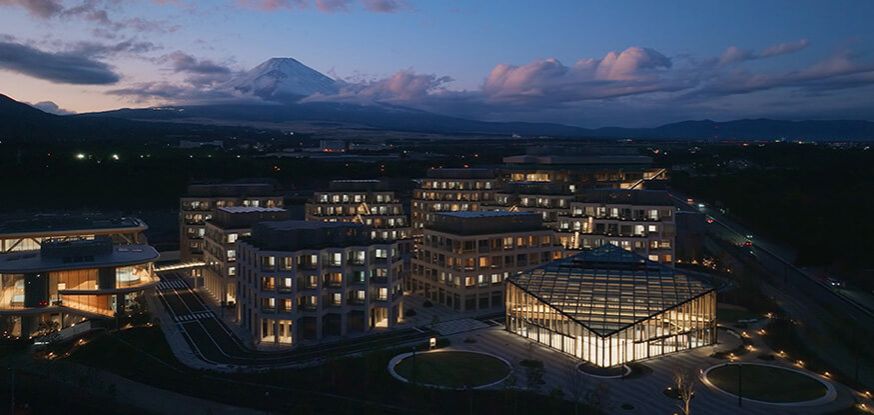Built on the former site of Toyota Motor East Japan’s (TMEJ) Higashi-Fuji Plant in Susono City, Woven City will feature 11 smart homes powered by advanced technologies, including artificial intelligence (AI).
This USD 10 billion project will initially house 100 residents, with a population expected to grow to 2,200. Dubbed “Weavers,” the first residents will primarily include Toyota employees, their families, and pets, along with inventors, scientists, and researchers who will develop experimental technologies for the company.
As Woven City enters its second construction phase, its impending launch is set to be a significant milestone in urban innovation.
Developing Future Technologies
Spanning approximately 708,000 square meters, Woven City will serve as a testbed for groundbreaking technologies, including autonomous vehicles and logistics, artificial intelligence (AI)-powered innovations, and robotics.
As a test course for mobility, the company is developing flying self-driving robotaxi in collaboration with Joby, and personal mobility devices, such as wheelchair racecars.
Among the innovative concepts yet to be developed are drones that safely escort residents at night, interactive pet robots that assist the elderly, and robots that support everyday tasks.
Moreover, Toyota introduced innovations such as Arene, a digital twin platform replicating real-world environments, and Vision AI, which combines video data analysis with AI to understand movement behavior.
Navigating the Living Laboratory
Toyota’s Chairman, Akio Toyoda, highlighted that the futuristic city is designed as a laboratory for developing future innovative technologies. The strategic project aims to leverage AI to expand the city’s reach, allowing virtual interactions with its systems and initiatives.
Toyoda emphasized that Woven City is more than just a residential project–it is a living laboratory where the residents are willing participants, allowing innovators to advance their technological explorations in a secure and real-life setting.
To support further advancements, the company’s focus on research and innovation will be central to the mobility of people, goods, information, and energy.
While the company does not expect financial returns, it views the city as a significant incubator for developing future technologies that could revolutionize global urban living.
Prioritizing Sustainability
Sustainability is central to Woven City’s design, with a focus on achieving low to zero emissions in transportation.
The city is designed to utilize a combination of hydrogen fuel cell technology, solar power, and geothermal energy. Roofs will be installed with carbon-sequestering wood with photovoltaic panels, paving the way to carbon neutrality.
The Chairman also emphasized the company’s responsibility as global citizens to invest in the collective future and exchange innovative ideas that could benefit the planet and its people.
“At its core, Woven City is about collaboration; it is about the opportunity to weave together diverse points of view, talents, and abilities to create a new kind of fabric for our future,” Toyoda said.
By leveraging Toyota’s manufacturing expertise, the futuristic city is a bold testament to the company’s mission to revolutionize the future of mobility through human-centric technologies and global technological innovation.


















